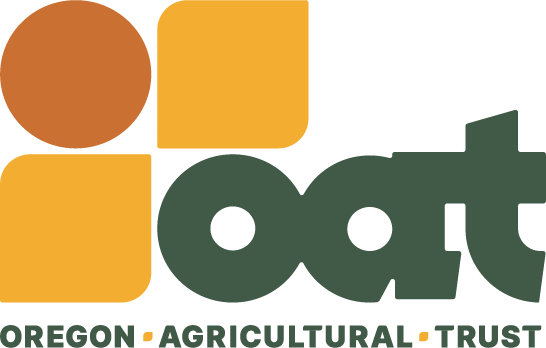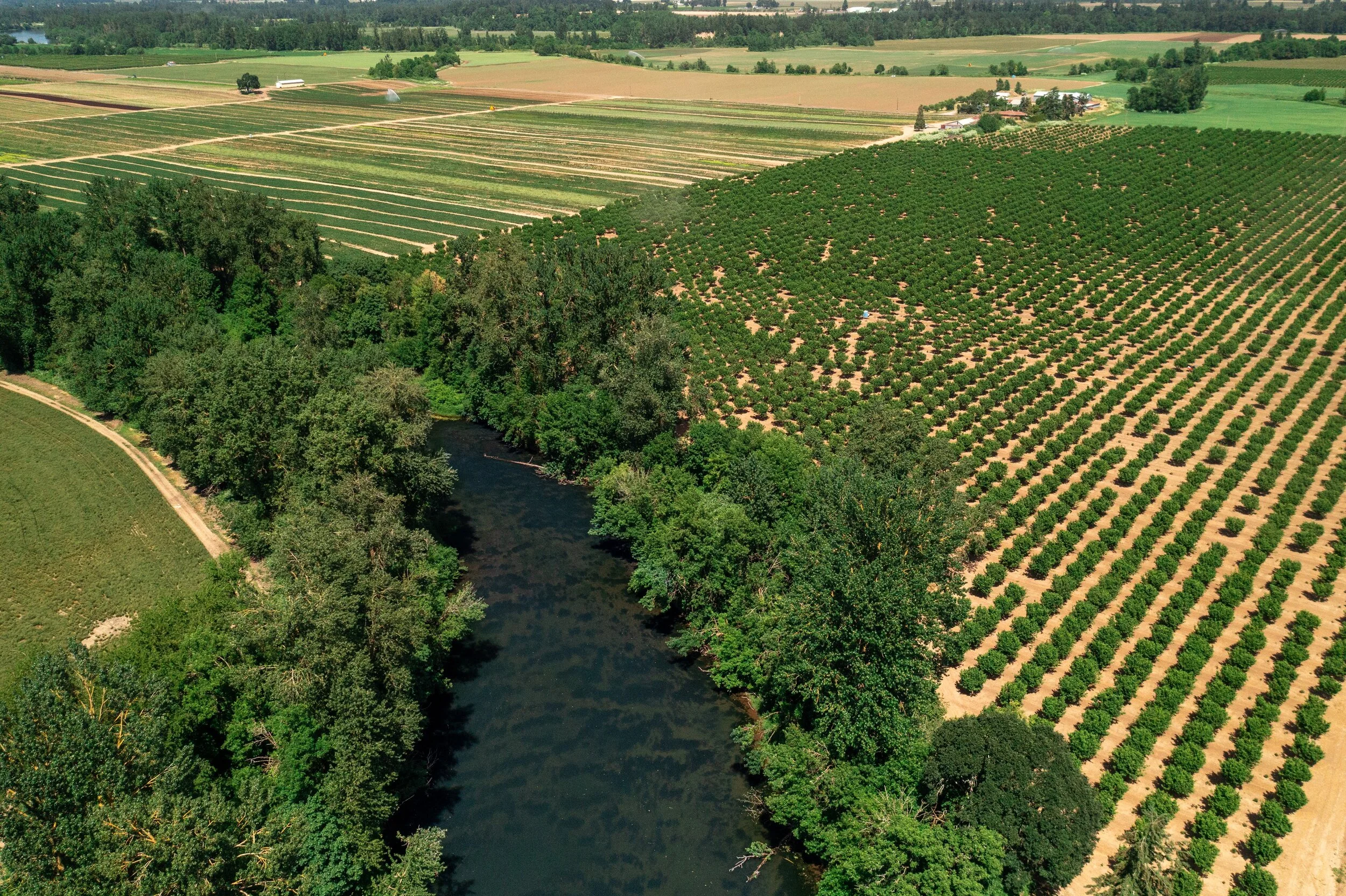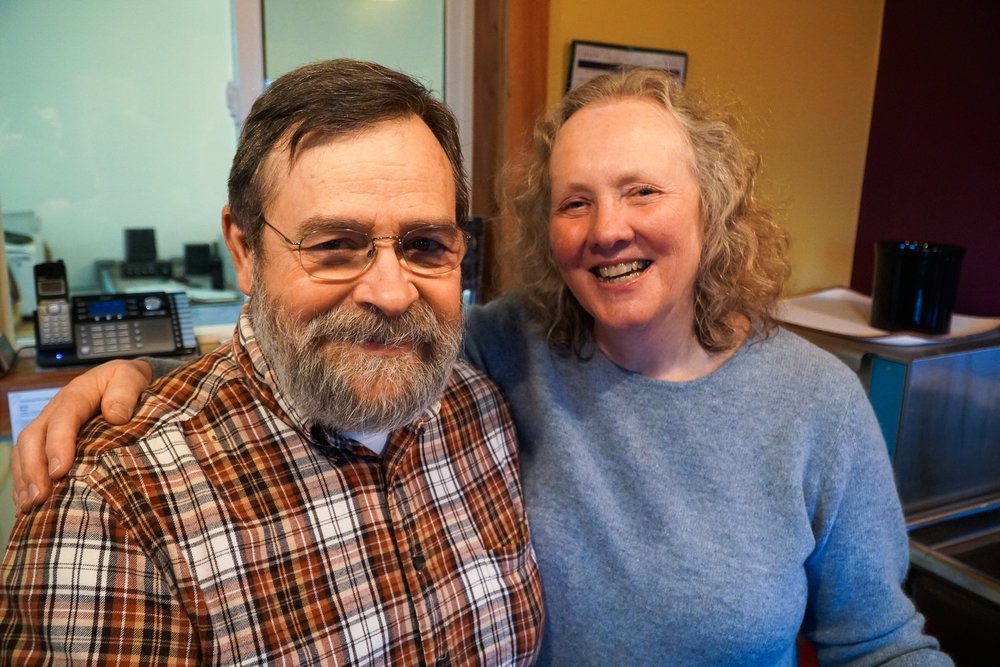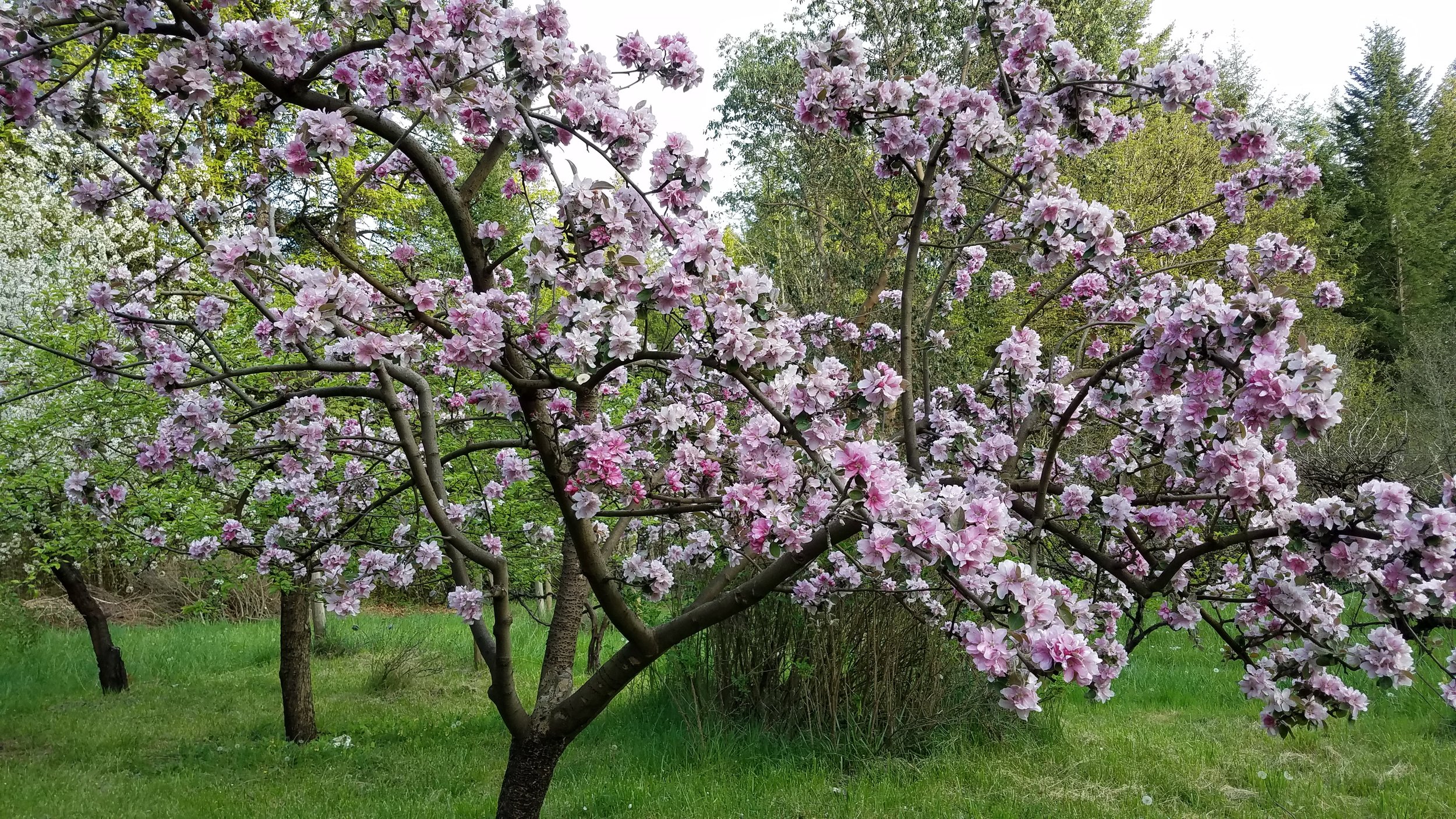Farmers and winemakers Jan Wallinder and Ron Webb share the story of their land, their reasons for a working land easement, and why they decided to work with OAT.
You start realizing when you're talking about perpetuity, that you need somebody who has the capacity to steward your land for perpetuity, having an organization like OAT that, though new, has depth and resources is important.
-Jan Wallinder
Ron Webb and Jan Wallinder
Jan Wallinder: We purchased this property in 1984. At that point in time, it was considered what we'd say bare land, so there weren't any improvements on it. There were trees, there was some forest.
Ron Webb: Growing up, I always liked to garden and grow things. Then I went to school and got distracted. Later I was a manager of a local food co-op in Newport and that sparked an interest in gardening again. I went through the OSU Master Gardener course and around that same time I read some books on permaculture. And then in '82, when we were still in Newport, I took the first full-blown permaculture design course, up in Olympia at Evergreen State College. After that, we felt like we wanted to try to do permaculture in a farming sort of way.
JW: I was a public health nurse and worked at Multnomah County Health Department. I continued to work there for a number of years while we were starting the farm.
Orchard at Forest Edge
Before we purchased the land, it was always in our mind that we wanted to do something that would protect whatever we had. The concept of owning land didn't make sense to us. It was really about being stewards of the land at this point in time, and then we would pass it on. We started learning about land trusts and some of the early land trusts movements going on in Oregon at the time.
We knew we had trees and we'd be managing a forest. We purchased this land because it had forest and open areas and you could work with that biodiversity. We had an area where we knew we would do a fruit orchard. Growing grapes was not at the top of our list. Then we started doing it and enjoyed it. Our first harvest was in 1994. Eventually we started making wine for ourselves and friends and that kind of evolved. We became licensed in 2009 and opened the tasting room in 2011. I retired in 2010. So it's my retirement job!
Forest Edge Vineyard
The way we manage our forest is what's called an individual tree, select cut. So we cut about every 10 years. You take down some trees so you're making some small amount of money periodically, but you never clear cut or have no canopy. For us that maintains some biodiversity, mixed age species, and you always have trees rather than just cutting everything down and waiting another 50 years before you can cut again.
RW: We're sensitive about the interface between farming and forestry, so that the forest is not having a negative impact on the farm. And vice versa.
JW: Protecting the land has been a long journey. Ron spent a fair amount of time investigating various land trusts and I think we kept finding we were either too small or we weren't in the right river drainage or they were more nature conservancy. Over the years we never found the right one to meet our interests and needs.
Harvested trees
We heard about Oregon Agricultural Trust at a workshop we took through Rogue Farm Corps. We met with OAT and explored what the options were. Initially we thought of a land trust as a place to donate your land. But it became clear that maybe an easement was also an option. It just sort of came together with OAT. You start realizing when you're talking about perpetuity, and somebody having the capacity to steward your land for perpetuity, having an organization like OAT that, even though new, has depth and resources is important.
RW: The most attractive aspect of OAT in the beginning was that they wanted to preserve working farm, ranch, and in our case, forest land. And that was important to us, because with other trusts we had talked to, they were more concerned about keeping everything the same. And we said well it's a working farm and forest; it's not going to be the same. So that's what we liked about OAT was they understood that it's working land.
JW: I think the other issue that was also always important is not just protecting the land and keeping it in farm and forest, but making it financially accessible to the next generation. We bought it at a time when you could afford it. Land these days is tremendously expensive and most young farmers can't afford land. Having an easement restricts development options, makes land less a commodity and hopefully can keep it more affordable. Because for us that is that next step: succession. We don't have children. So what is going to be the succession plan and how do we keep this affordable for the next generation?
Forest Edge wines
I wish there had been an OAT 20 or 30 years ago. Since their focus is working farms and protecting agriculture and maintaining agriculture in Oregon, they're kind of an ideal fit. I’d tell another farmer who wanted to protect their land that it’s good to be clear on what your goals and interests are. If you want to protect your land, to keep it in agricultural use, this would be great. If you're primarily interested in keeping it for a wildlife habitat this is okay but there are probably other ways to approach that.
With easements, you maintain ownership. The easement will be attached to the title when we sell it. So if you're worried about losing control, you don't lose control, you have control, you still can decide when and where you want to sell. There might be some parameters in the easement as you work through those things. But you still are in control of your land. If you've bought land that you're hoping will sometime be able to develop into a subdivision and sell it in one-acre parcels, you don't want to do this. But if you're really wanting to maintain forest land, or agricultural or small farms, create that sense of community, and not have sprawl, then you want to think about doing this. That's probably the simplest way to think about it.
If you want to maintain the kind of network of small woodland owners and small farmers, this is about the only way I think people will be able to survive, particularly in areas that are closer to cities. We're kind of on the fringe of the metro area. To maintain that kind of feel of Oregon as being small farmers, entrepreneurs, farmers markets, where you can get local produce that you know where it came from, the local sheep and wool that you know where that came from, you know, we all kind of like that. This is a way to help save that for the future.






